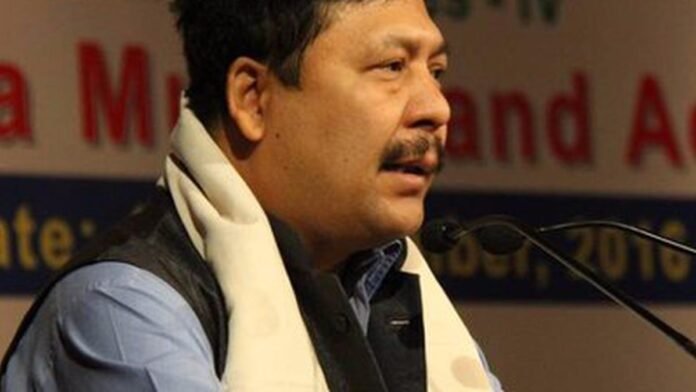The nomination of a Member of Parliament (MP) has been rejected due to an invalid Scheduled Tribe (ST) certificate. This decision has not only raised eyebrows but has also sparked debates surrounding the authenticity of tribal identities, the procedural integrity of political candidacies, and the legal framework governing such matters.
The incident, which occurred amidst the backdrop of heightened political tensions and identity-based movements in Assam, has added fuel to the already contentious discourse surrounding indigenous rights and representation in the state. The rejected nomination underscores the intricacies and complexities involved in determining tribal status, especially in a region as diverse and culturally rich as Assam.
The rejection of the MP’s nomination over an invalid ST certificate highlights the significance of stringent verification processes in ensuring the integrity of political representation. ST status in India is accorded to certain indigenous communities to safeguard their rights and promote their socio-economic development. However, the misuse or falsification of ST certificates undermines the purpose of reservation policies meant to uplift marginalized communities.
Moreover, the rejection brings to the fore the challenges faced by genuine tribal individuals in obtaining and maintaining valid certificates. The bureaucratic hurdles, coupled with the lack of awareness and accessibility to government services in remote tribal areas, often impede eligible candidates from availing the benefits entitled to them. This raises questions about the adequacy of support systems and administrative mechanisms in place to assist tribal communities in securing their rightful recognition.
Beyond the legal and administrative dimensions, the incident also has significant social implications. It underscores the deeply entrenched issue of identity politics and the contestations surrounding indigenous authenticity in Assam. The determination of tribal identity is not merely a matter of paperwork but is deeply rooted in cultural, historical, and community affiliations. The rejection of the MP’s nomination over an invalid ST certificate reflects the larger struggle for self-determination and recognition faced by indigenous peoples in asserting their rights and preserving their heritage.
Furthermore, the incident has reignited debates regarding the politicization of tribal identities for electoral gains. Allegations of opportunistic maneuvering and fraudulent practices to gain access to reserved seats have been leveled against various political actors. Such practices not only undermine the principles of democracy but also perpetuate social divisions and erode trust in political institutions.
In light of these developments, there is a pressing need for comprehensive reforms to streamline the process of verifying tribal identities and ensuring the authenticity of ST certificates. This entails strengthening the institutional capacity of relevant authorities, enhancing outreach efforts to remote tribal communities, and implementing stringent measures to prevent misuse and fraud.
Moreover, there is a need for greater transparency and accountability in the scrutiny of candidatures, particularly in cases where tribal identity is a determining factor. Political parties must exercise due diligence in vetting their candidates and adhere strictly to legal and ethical standards to uphold the integrity of the electoral process.
Additionally, concerted efforts are required to address the underlying socio-economic disparities and structural inequalities faced by tribal communities in Assam. This includes targeted interventions aimed at improving access to education, healthcare, and economic opportunities, thereby empowering indigenous peoples to assert their rights and participate meaningfully in the democratic process.
In addition, the rejection of an Assam MP’s nomination over an invalid ST certificate serves as a stark reminder of the multifaceted challenges inherent in the determination of tribal identity and representation. It underscores the need for a holistic approach encompassing legal, administrative, social, and economic dimensions to address the underlying issues effectively. Only through concerted efforts and inclusive policies can Assam and India at large ensure the equitable representation and empowerment of its diverse indigenous populations.


